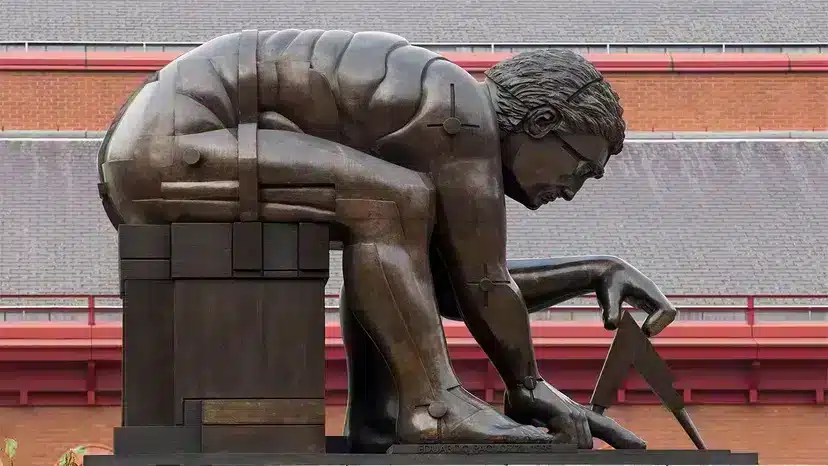Sir Isaac Newton: The Father of Modern Physics

Sir Isaac Newton ( 4 January 1643 — 31 March 1727) was an English physicist, mathematician, astronomer, and natural philosopher who is widely regarded as one of the most influential scientists in history. He is best known for his work on the laws of motion, which form the basis of classical mechanics, and for his development of calculus. He made major contributions to the study of light and optics and is also credited with the development of the reflecting telescope. Newton’s laws of motion, along with his law of universal gravitation, helped to explain the motion of objects on Earth and in the universe, and his work laid the foundation for much of modern science.
Life and Career
Isaac Newton was born on 4 January 1643 in Woolsthorpe, Lincolnshire, England. His father, also named Isaac Newton, was a farmer who died three months before Newton was born. Newton’s mother, Hannah Ayscough, remarried and left young Isaac in the care of his grandmother. Newton was not a particularly successful student and was removed from school at the age of 12 to be sent to work on the farm. However, his uncle recognized his potential and convinced his mother to allow him to return to school. Newton went on to attend Trinity College, Cambridge, where he studied mathematics, physics, and astronomy.
While at Cambridge, Newton developed his theory of calculus, which he called the “method of fluxions.” He also began to study the properties of light and color and built his first reflecting telescope. After earning his degree, Newton returned to Woolsthorpe, where he developed his theory of universal gravitation. In 1687, Newton published his most famous work, “Principia Mathematica,” in which he presented his laws of motion and his theory of universal gravitation. The work was met with great acclaim and established Newton as one of the leading scientists of his time. Newton went on to hold a number of important positions, including Warden of the Royal Mint and President of the Royal Society. He was knighted by Queen Anne in 1705 and spent the latter part of his life working on a variety of scientific and philosophical projects. Newton died on 31 March 1727 at the age of 84. He was given a ceremonial funeral, attended by nobles, scientists, and philosophers, and was buried in Westminster Abbey among kings and queens. He is also the first scientist to be buried in the abbey.
Award and Legacy
Newton’s most famous work, “Principia Mathematica,” is considered one of the most important scientific works ever published, and his laws of motion and theory of universal gravitation have had a profound impact on our understanding of the natural world. In addition to his scientific achievements, Newton made important contributions to the field of mathematics, particularly with his development of calculus. Calculus is a branch of mathematics that deals with rates of change and the sizes of infinite series and is used in many areas of science, engineering, and economics.
Newton’s legacy extends beyond his scientific and mathematical contributions. He was a key figure in the scientific revolution of the 17th century, and his work laid the foundations for much of modern science. His ideas and methods have influenced generations of scientists and continue to shape the way we understand the world around us. On 4 January 2010, Google Doodle celebrated Sir Isaac Newton’s 367th Birthday.
Read More: Isaac Newton Quotes
Observer Voice is the one stop site for National, International news, Sports, Editor’s Choice, Art/culture contents, Quotes and much more. We also cover historical contents. Historical contents includes World History, Indian History, and what happened today. The website also covers Entertainment across the India and World.

